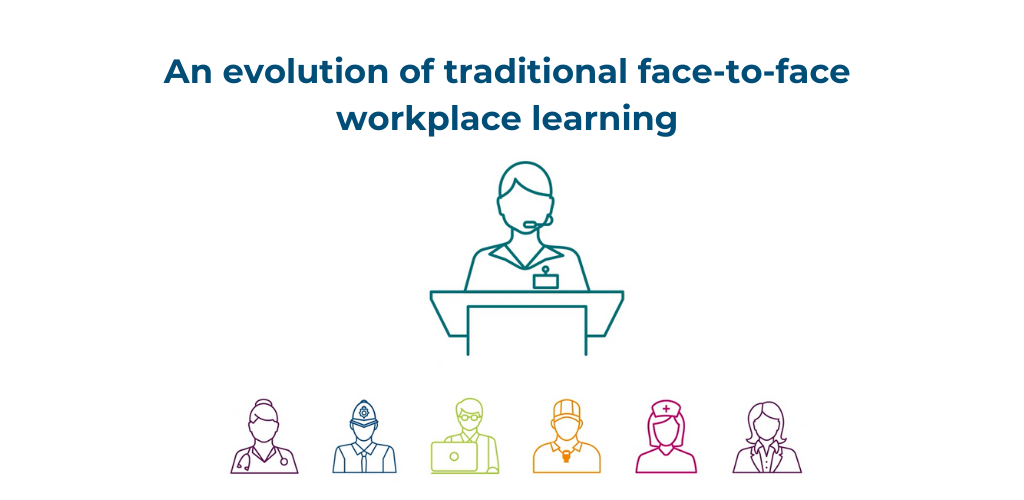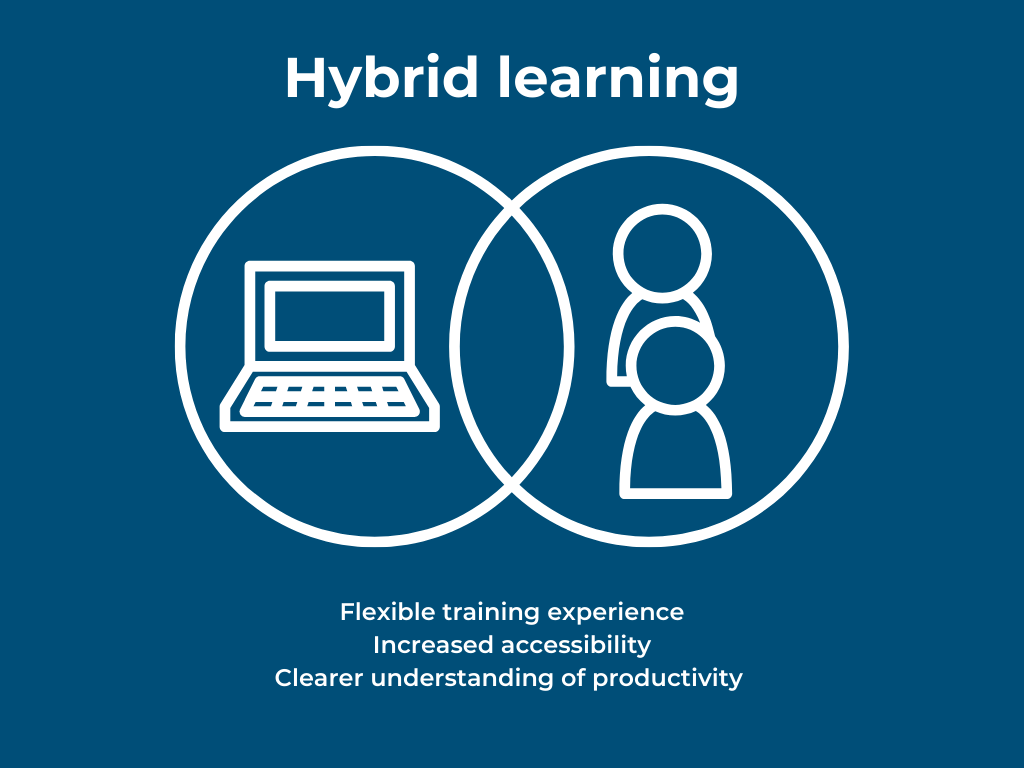The Changing Landscape of Training
Training has been an integral part of the workplace for decades and for the most part, it was presented in a face-to-face format. However, when the Covid-19 pandemic took hold in 2020 and work from home rules were enforced, it became clear that businesses needed to address the way that courses were designed and delivered fast, and make the switch to a digital offering so they could continue being delivered. But this was by no means a simple thing to do for many organisations, especially those in sectors which specialise in sensitive or complex issues, such as safeguarding.
The nature of workplace learning is still evolving though, and traditional skill assessment and training methods are becoming outdated. It has become clear over the past year that the landscape of training has changed, as businesses recognise the need to remain flexible so they can react quickly to any future challenges.

What is the impact on skill assessment and training?
There is no doubt that the initial move to using only digital platforms might have proved challenging for many organisations and trainers to begin with, but thanks to advances in technology over recent years, a remote working approach for many employees is now the norm so it’s more important than ever that training is accessible to enable them to progress in their roles and retain skillsets.
Sarah O’Brien, Senior Learning & Organisational Development Officer at Derby and Derbyshire Safeguarding Children Partnership, explained: “Hybrid working has created a demand for upskilling the workforce and resulted in an increased need for training. Staffing structures have also changed since the start of the pandemic and employees have been reassessing their lives and the work-life balance.”
Virtual training is physically accessible as it eliminates the need for travel so participants who previously couldn’t attend courses due to excessive journey times have been able to take advantage of the convenience and go straight from work into a course. This is especially true for individuals who are restricted to their place of work.
While there are many benefits that come with learning online, there are some downfalls. Face-to-face sessions help to create a personal connection with other attendees and the trainer, and it can be difficult to support delegates if the content is distressing when they are on a virtual course. There is also the impact on practical training which requires a hands-on approach as this can prove almost impossible when completed virtually. Emma Rodriguez, Professional Adviser at Greenwich Safeguarding Children Partnership, added: “When we first moved to virtual training, we had concerns that it wouldn’t be possible to deliver the mental health first aid course, as it was traditionally a face-to-face session, but the creator of the course managed to adapt it successfully and it works well online.”
Modular e-learning courses are also a viable option, so that delegates are able to complete sections or modules of training to fit in with their own time schedule. Another benefit of this was suggested by Steve Macabee, Multi-Agency Training Manager at Somerset Safeguarding Children Partnership: “Offering pre-requisite modules which need to be completed before a course also allows more time for discussion during the actual training.”
Trainers recognise that virtual courses offer a different experience to face-to-face and that it can be tricky to keep participants engaged throughout, so they need to ensure that they deliver a fulfilling and immersive experience by incorporating various teaching techniques such as visual aids, video content, polls, chat messaging, webinars and breakout sessions.
What does the future hold?
A PwC report found that the consumer shift to digital channels will remain after the pandemic and online shopping looks set to stay as shoppers are keen to find the best price, are able to choose more healthy options and want to be eco-friendly by shopping locally where possible*. From the increase in online shopping, to the many businesses now offering flexible working patterns, having the ability to carry out tasks online is preferential in a number of cases.
Trends can be seen since the shift to online learning and training. Zoom and Microsoft Teams have become used on a much bigger scale than ever before, giving employees a greater level of flexibility in how they work and stay in touch. Zoom generated $4 billion revenue in 2021, a 53% increase year-on-year and was one of the fastest growing apps of the pandemic**, whilst Teams jumped from 75 million daily active users in April 2020 to 145 million in April 2021***. Despite this, there are some complications concerning equality and fairness as not everyone can access the tools they need, while some people are simply unable to carry out their role online, such as key workers. It is also essential to continuously evaluate whether learning and development teams have the skills and mindsets to deliver what is required.
A hybrid approach to training appears to be a long-term solution which draws on the benefits of both virtual and face-to-face courses and allows organisations to offer suitable training which considers travel requirements, the delivery of emotive topics and delegates with additional learning needs or disabilities.

A training landscape that is here to stay
Virtual training supports a higher skilled workforce as delegates who were previously restricted by course locations are now able to attend. eLearning is extremely flexible, and delegates can participate in modules at their own convenience. Sam Smith, Partnership Manager at Hampshire Safeguarding Children Partnership, said: “Hampshire is a huge county so when we introduced virtual learning and bite-sized webinars on a variety of subjects, we found the uptake in courses dramatically increased as delegates didn’t need to travel. We’d never seen this level of buy-in prior to the pandemic. There is now a wider range of participants attending, such as police officers, childminders, military personnel and nurses.”
There have been some concerns about online course completion and whether there has been a decline when compared to face-to-face sessions, so having the ability to evaluate learners’ knowledge and confidence pre-and post-training is of paramount importance.
Sam concluded: “The success of our virtual courses wouldn’t have been possible without Phew’s Learning Management System and eLearning module. In 2019-20 we had approximately 435 eLearning delegates, which increased considerably to 2,100 in 2020-21. The latest figures in March 2022 show that we are nearing 6,000.
“It makes processes robust, simpler, and more efficient by automating what were previously manual processes. It also allows us to measure the effectiveness and productivity of each event or course effortlessly, as well as report the impact on children.”
![]()
Would you like to find out how the Phew LMS can help your organisation coordinate multi-agency safeguarding training events and courses with ease, with a hybrid, forward-thinking model? Get in touch to book a free demo and we can also explain how the system saves time and resources, whilst adding to the Board’s value and efficiency. Simply drop us an email at hello@phew.org.uk or telephone 01234 779050.
*Reference: https://www.weforum.org/agenda/2021/07/global-consumer-behaviour-trends-online-shopping/
**Reference: https://www.businessofapps.com/data/zoom-statistics/
***Reference: https://www.geekwire.com/2022/microsoft-teams-surpasses-270m-monthly-active-users-as-growth-slows-from-early-days-of-pandemic/
